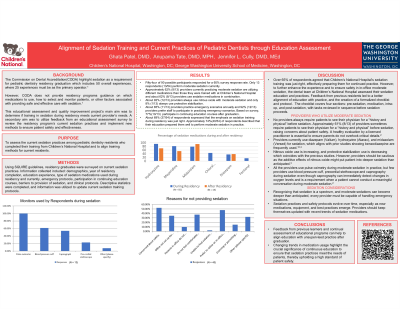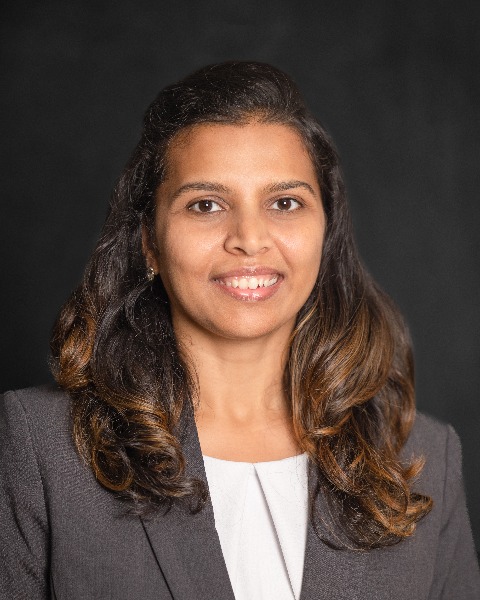Sedation
Review of Sedation Practices of Hospital-Trained Pediatric Dentists to Improve Training
189 - Alignment of Sedation Training and Current Practices of Pediatric Dentists through Education Assessment


Ghata Patel, DMD
Pediatric dental resident
Children’s National Medical Center, Washington, D.C.
Children's National Hospital, Washington, DC
Laurel, Maryland, United States- JC
Jennifer L. Cully, DMD
Chief of Dentistry
Children's National Hospital
Washington, District of Columbia, United States .jpg)
Anupama Rao Tate, DMD
Oral Health Advocacy Director, Associate Professor of Pediatrics (George Washington Medical School)
Children’s National Medical Center, Washington, D.C.
The George Washington Univeristy School of Medicine
Washington, District of Columbia, United States- JC
Jennifer L. Cully, DMD
Chief of Dentistry
Children's National Hospital
Washington, District of Columbia, United States - MC
Mudrika Chhabra, DMD
Program Director
Children's National Hospital
Washington DC, District of Columbia, United States
Presenting Author(s)
Co-Author(s)
Research Mentor(s)
Program Director(s)
Purpose: To assess the current sedation practices among pediatric dentistry residents who completed their training from an urban children’s teaching hospital to improve current training methods.
Method: Using SQUIRE guidelines, residency graduates were surveyed on current sedation practices. Information collected included: demographics, year of residency completion, education experience, type of sedation medications used during residency and currently, emergency protocols, participation in continuing education courses, barriers to provision of sedation, and clinical protocols. Descriptive statistics were completed, and information was utilized to update current sedation training protocols.
Results: Fifty-four of 90 possible former residents responded for a response rate of 60%. Thirteen respondents (24%) currently perform moderate sedation. Predominant sedation medication preferences have shifted from Chloral hydrate and Fentanyl to Midazolam, Meperidine, and Hydroxyzine over the years.
Conclusion: Most providers do not utilize sedation in their practice, despite feeling prepared to perform sedation after residency. This study underscores the necessity of residency programs to continually assess sedation curriculums and clinical opportunities to ensure that sedation training meets current standards.
Identify Supporting Agency and Grant Number: Children's National Hospital, Dentistry Department

.jpg)